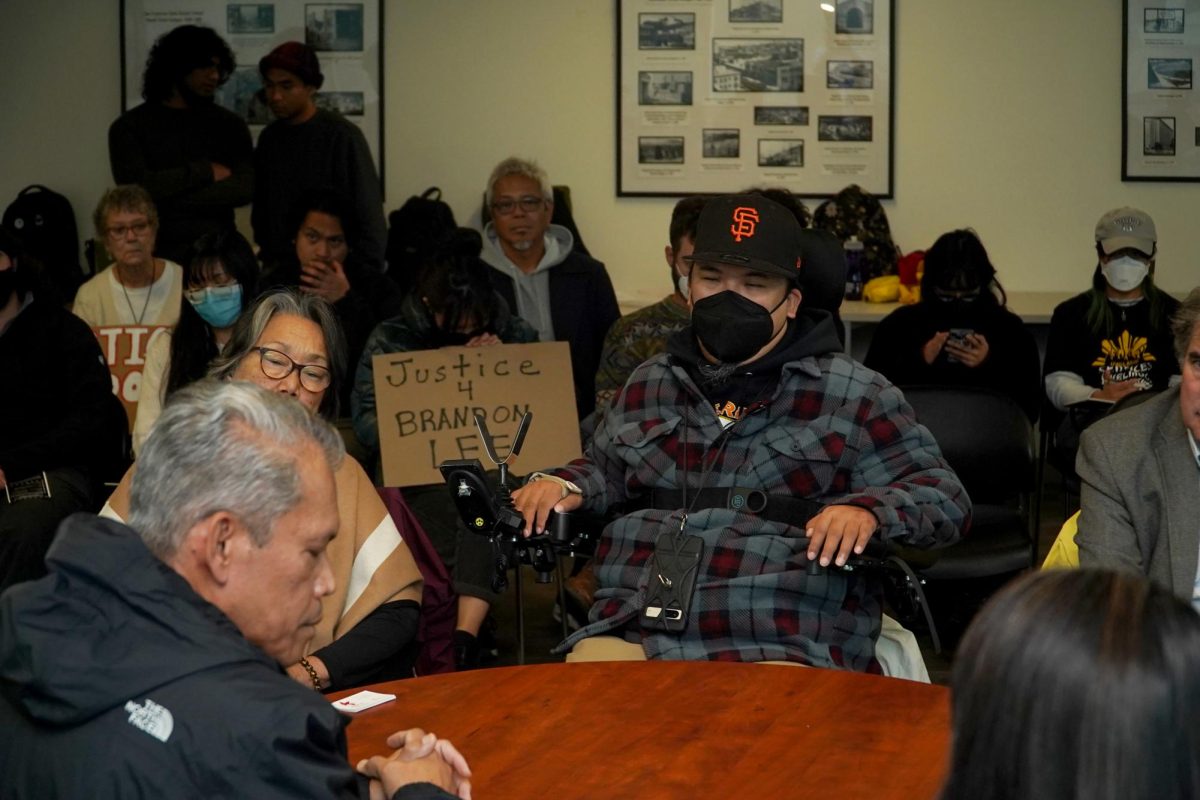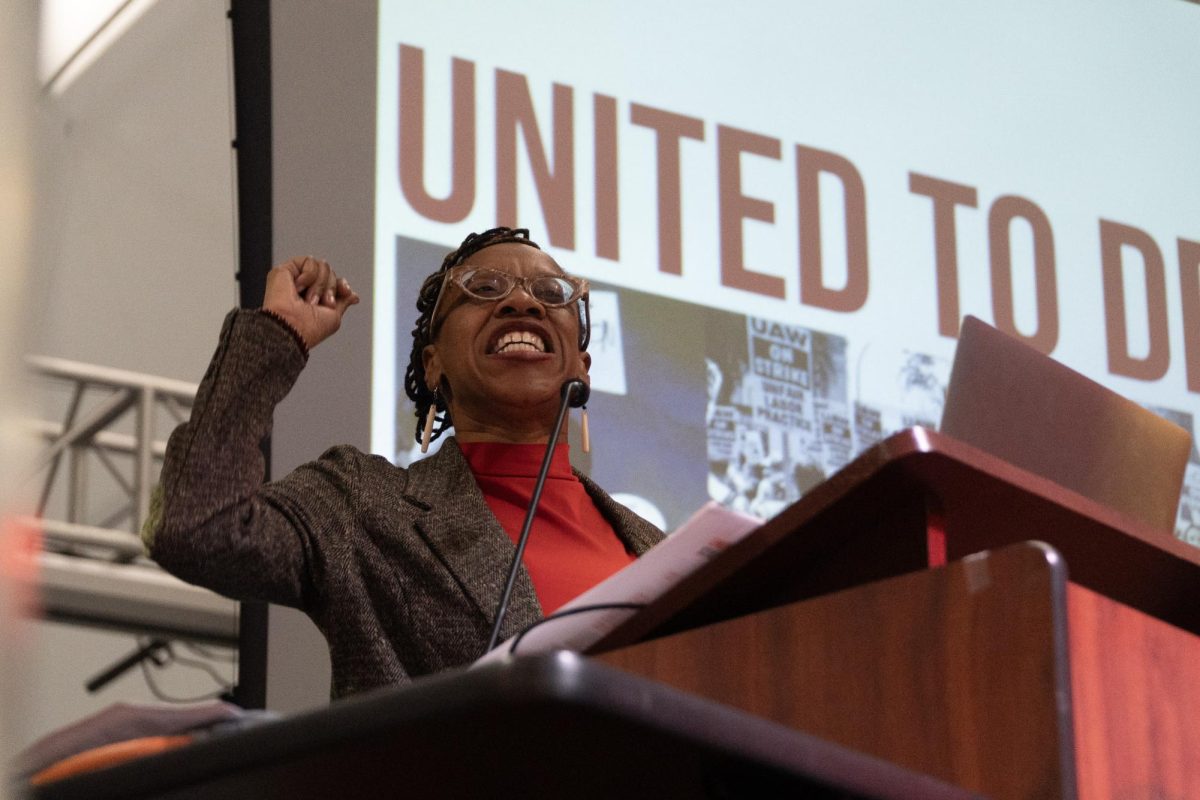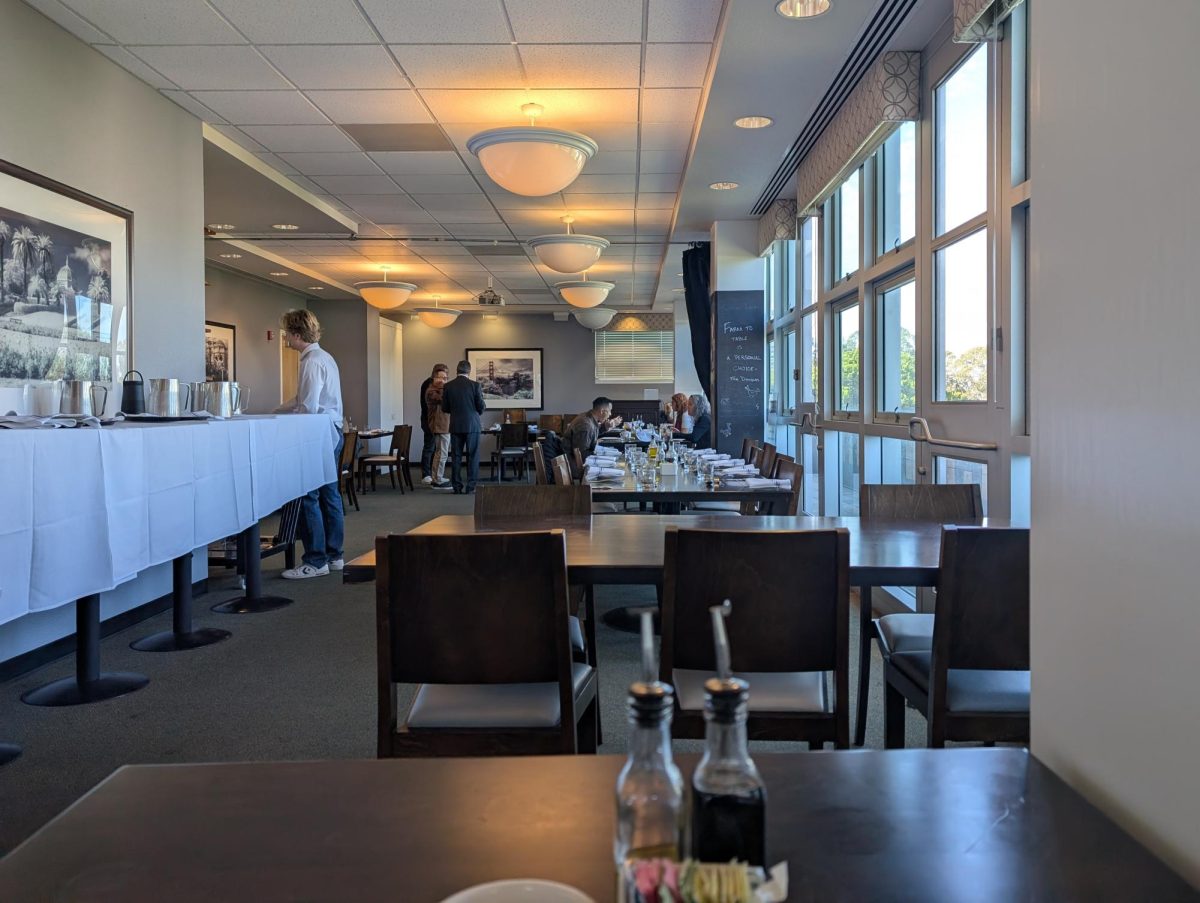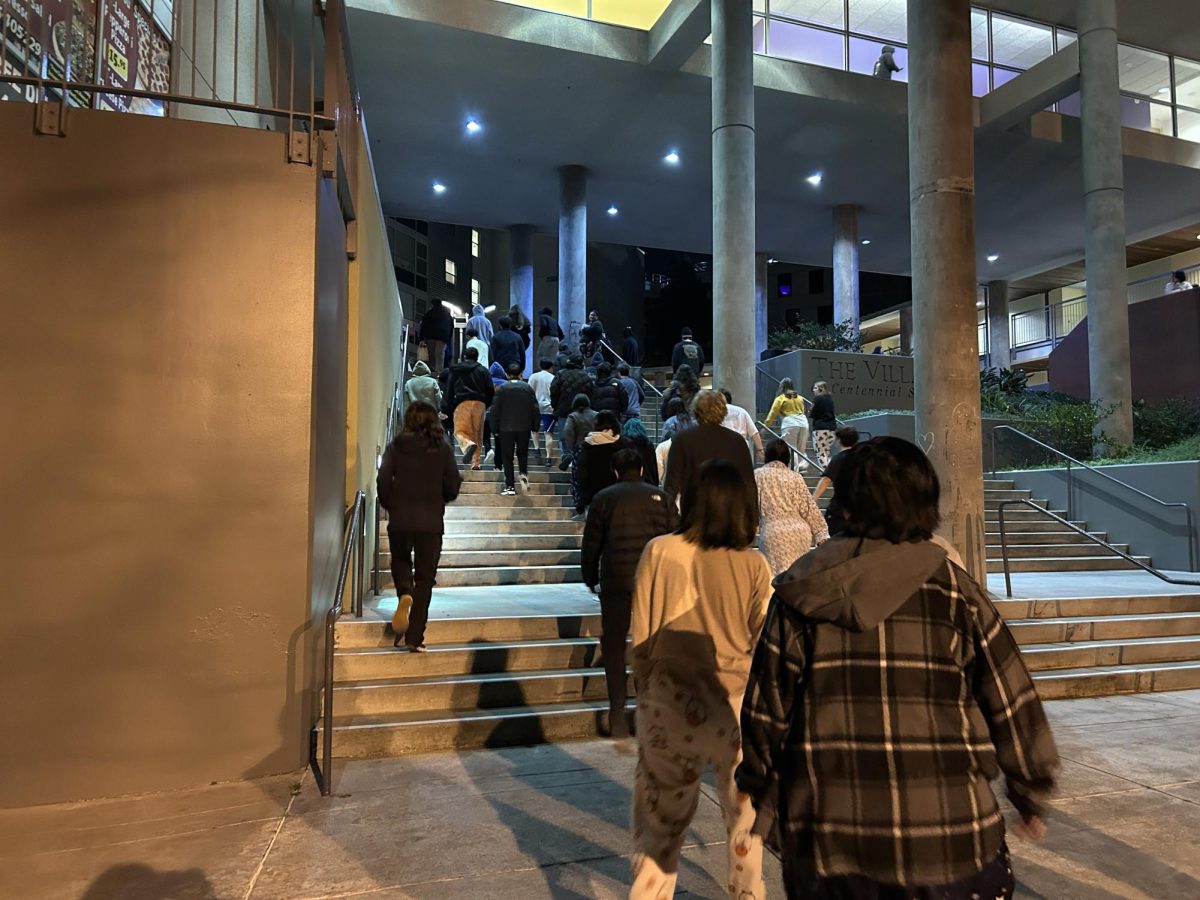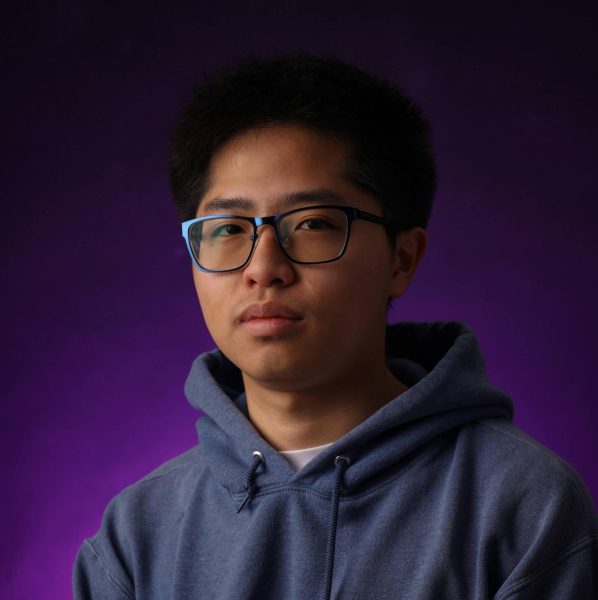On Nov. 20, San Francisco State University alum Brandon Lee met with San Francisco Philippines Consul General Neil Frank R. Ferrer at J. Paul Leonard Library to participate in a round table discussion on red-tagging.
Red-tagging is the labeling of organizations or individuals as communists or terrorists by law enforcement. According to Lee, Philippines police officials referred to SFSU as “a breeding ground for terrorists.”
Inside room 286, loud chants of “Justice for Brandon Lee” in Tagalog could be heard coming from those present at the event. Approximately 15 people were in attendance, as well as leaders from the local Filipino community and members of SFSU League of Filipino Students.
Lee, also a human rights and environmental activist, was attacked by an armed assailant who attempted to murder him in the Philippines back in 2019. The attack left him disabled and five years later, there has still been no investigation of the incident by the United States or the Philippines.
Lee’s lawyers pressed Ferrer to facilitate a meeting with the Philippines’ ambassador to the U.S. Jose Manuel Romualdez and Lee to address the alleged red-tagging of SFSU.
After surviving the attempted murder, Lee’s work is now centered on getting a moratorium on U.S. military aid to the Philippines and he insists on meeting with Romualdez, to tell him so. As far as the possibility of a conference with the ambassador, Lee remains skeptical.
“I feel like it’s gonna be the same,” Lee said. “I wasn’t surprised. I felt like he [Ferrer] was pressured and the fact that he might be committing to making a recommendation to meet with the ambassador was a low bar that I think he can easily do. Did he do that? In my mind, he did not”.
Ferrer responded but was mostly criticized by attendees for what they considered a feeble response to the Lee incident and red-tagging.
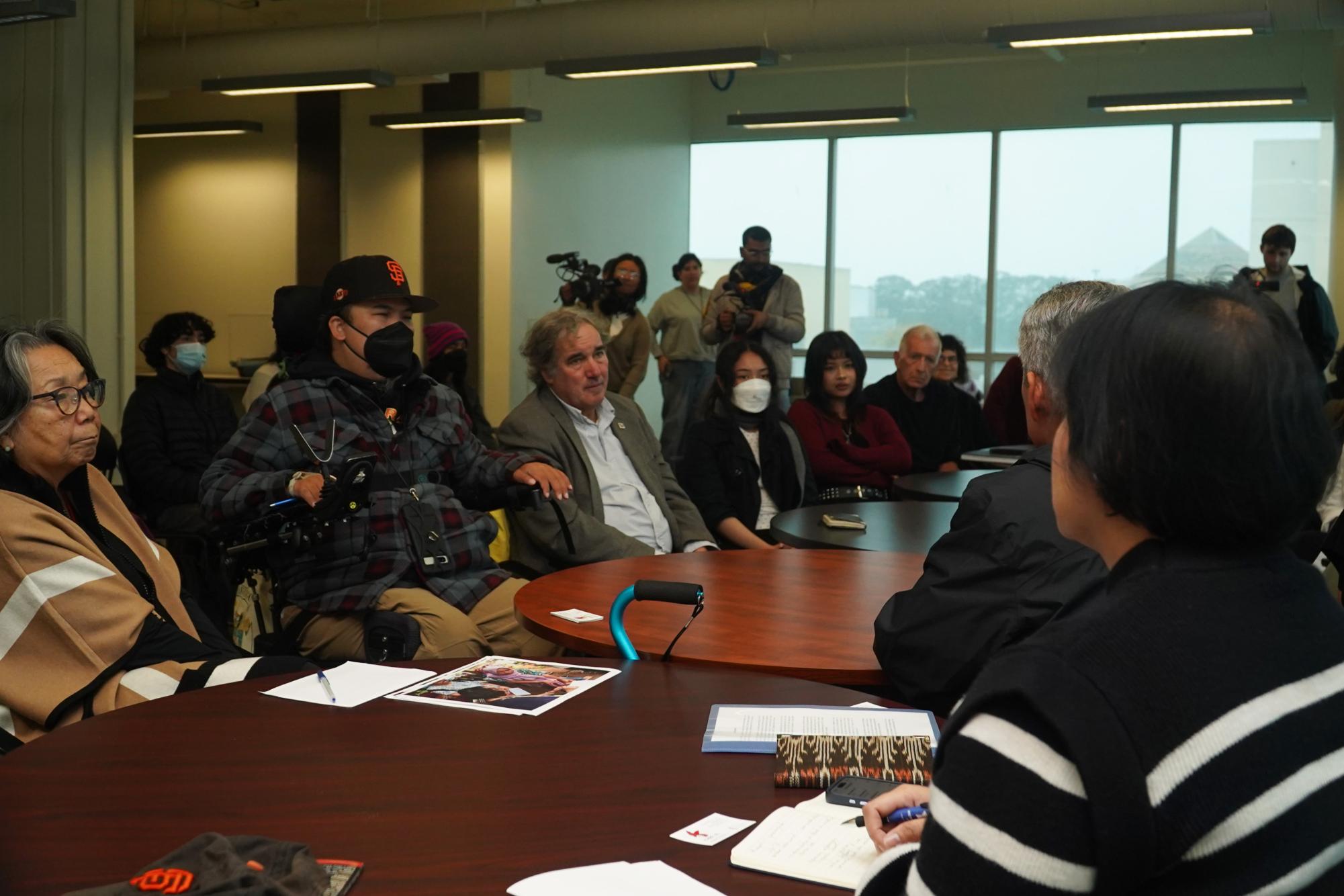
“It is not for me to determine what justice is. It should be decided by the court and the proper authorities. To be honest, I have been seeking the submission of their request,” said Ferrer. “I would appreciate receiving a letter of their request to reopen. And once we’ve received it, definitely, we will endorse it.”
Rithik Hemanth, an economics student and member of Resist U.S. Led War and SFSU LFS, shared Lee’s skepticism.
“We’re at, I would say, a stalemate,” Hemanth said. “I feel we have to see what the consulate general will do. However, I will say, in the past, when we have delivered ledgers and he said he’d get back to us, he hasn’t, such as International Migrants Day last year.”
Members of the local Filipino community also had a seat at the table, like Oscar Penaranda, a self-identified poet and elder leader. He observed that human rights were a core issue at the day’s meeting and offered his perspective on the proceedings’ main topic.
“Most of the comments here today were about the abuse of human rights in the Philippines, because of what happened to Brandon, which is right, but I didn’t want to miss the abuse of human rights here in the United States too,” Penaranda said. “We preach to the world how to do it, but we’re not doing it right either. We’re hypocrites here,” he said when referring to Gaza.
Lee reflected on his decades of activist experience, offering insight to future activists at SFSU.
“Anytime there’s injustice anywhere around the world and you feel a call to do something, do it. That’s the only way things can change. If you’re apathetic, nothing will change,” Lee said.
This December, Lee plans to meet with Ambassador Romualdez again in Washington and attend the general assembly for the U.S. chapter of the International Coalition for Human Rights in the Philippines.




